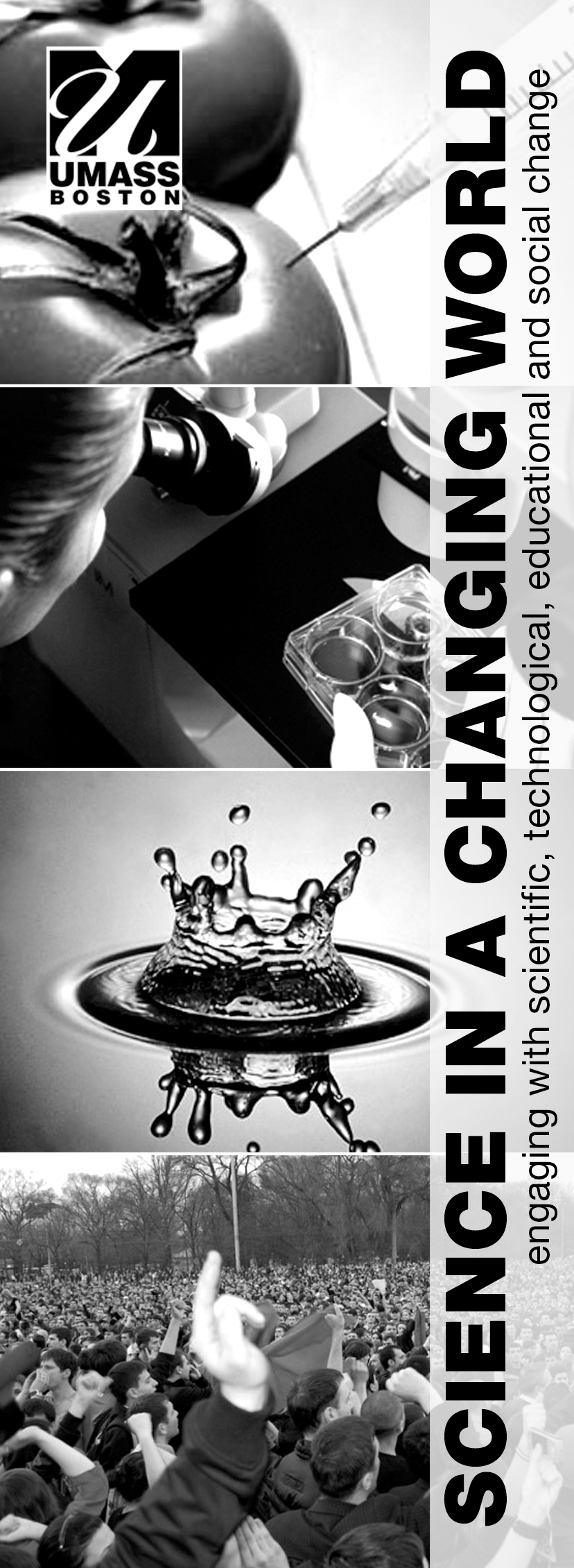
Science in a Changing World
engaging with scientific, technological, educational and social change
Graduates from the SICW Track
Updates and testimonials
The SICW graduate track is new as of fall 2009, so there are no graduates yet whose post-SICW career can be highlighted. However, here are some examples of students in the Critical & Creative Thinking (CCT) graduate program with interests in the SICW area:
- two teachers in the Boston Public Schools—one developed a conceptual-change curriculum in High School physics and used the CCT degree to advance on the career ladder, the other developed a science teaching framework incorporating dialectical philosophy and hopes to apply to a doctoral program
- a community college librarian with a background in English who went on to in a biomedical/public health research unit
- an adult educator who developed his teaching of technology skills in a bilingual program for immigrants
- someone headed for a doctoral program in Botany who shifted to educational web design (and is grateful that her Masters studies gave her the space to clarify her aspirations)
- a teacher who now works for the MA Department of Education analyzing assessment and performance
- a middle school teacher (who took the Graduate Certificate) who collects (and hopes to contribute to) literature that highlights the roles in science taken by women.
While the SICW track expects to attract students on similarly idiosyncratic paths of professional and personal development, the SICW track will be marketed to students of four somewhat overlapping kinds:
- students in a range of Masters and Doctoral programs at UMass Boston who will take the Certificate as an add-on. Courses taken for UMass Boston graduate degrees can count for any certificate as well, so students in any degree program can use this Certificate to enhance their particular studies.
- professionals and activists who will take the Certificate as a stand-alone program or the M.A. with the SICW track. SICW is being promoted widely, for example, to journalists and editors in science publishing, teachers, librarians, educational web designers, other IT specialists, university advancement and advising staff, activists in public health and environmental non-profits. As the examples above indicate, people from a surprising range of backgrounds will find the Track on their own and use it to develop or change the direction of their work and lives.
- educators and researchers in the sciences who respond to the call for "21st Century Skills" (which CCT has been promoting since well back in the 20th Century!), especially: Thinking and problem-solving, Inter-personal and self-direction skills, Global knowledge and understanding, and Civil literacy. As highlighted in the November 2008 report of the task force on this topic for the Massachusetts Board of Education, "the overarching challenge for all educators is to rethink not what they teach, but 'how to empower students to use that information.'"
- students and researchers in the sciences who want to move from research to areas of civic engagement
2010
Pam DiBona, New England Aquarium
Felicia Sullivan, UMB Public Policy Doctoral candidate